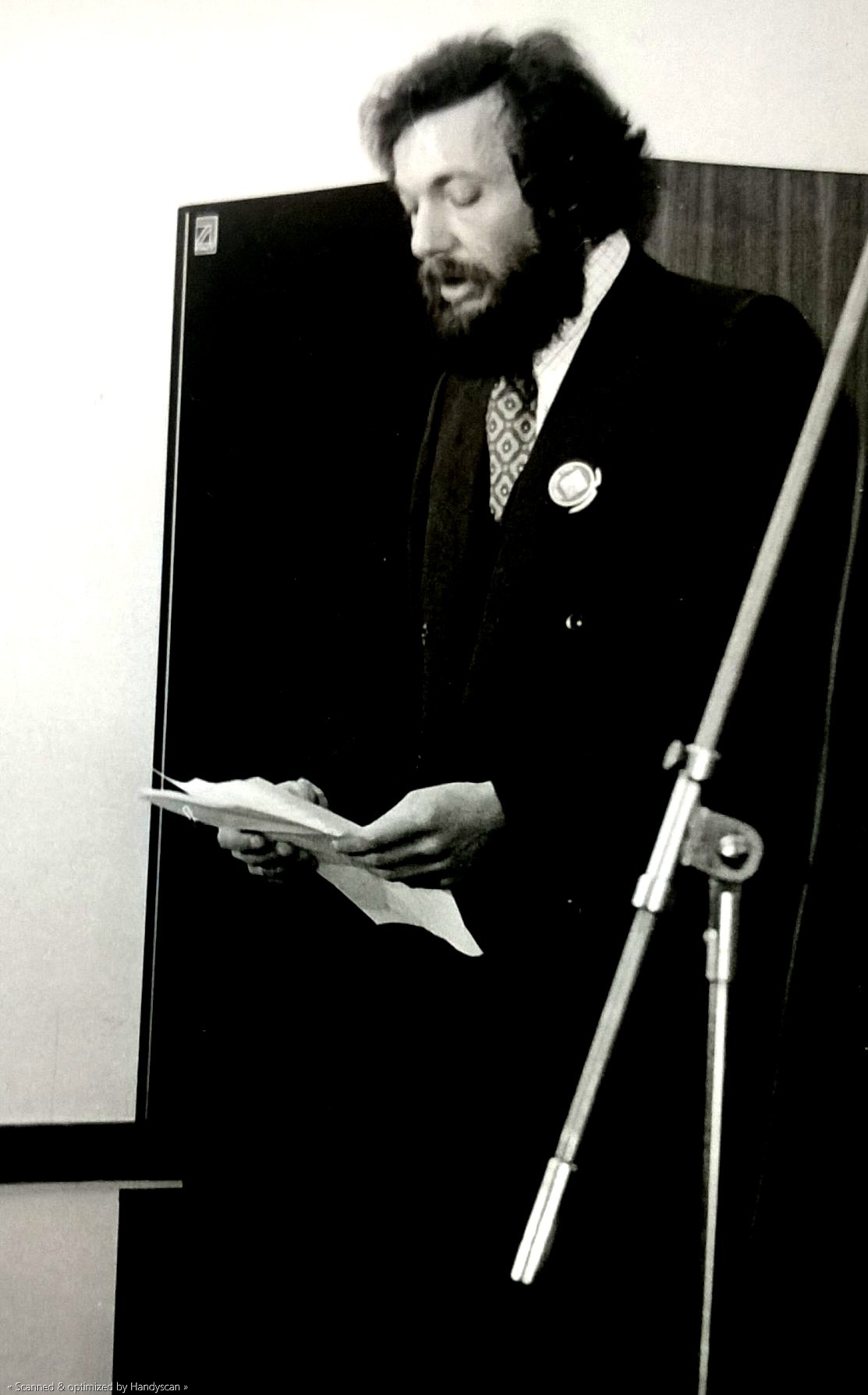Srđan Hofman’s collection accumulated organically from the beginning of his career in the late 1960s through the present. The author has catalogued the collection in a database which helps us to date the beginning of the collection to 1967 when Hofman, as a final-year student at the Academy of Music, finished his first composition Preludio per orchestra da camera, performed in the same year by the Belgrade Philharmonic Orchestra. The most recent composition in the database is The Mirror, for mezzo-soprano, cello, piano, and chamber orchestra.
Hofman claims that he does not remember himself as part of the “cultural opposition” in the 1970s and 1980s, since, in his opinion, “in Belgrade, there was no dominant ‘soc-realism narrative’, nor [an] ‘all valid thesis’ which would prescribe artistic poetics, deeds, content… that would affect creativity in music. There were strong (and among themselves antagonistic) groups of ‘traditionalists’, conservative, and, on the other hand, avantgarde composers who were striving for bigger attention of the society (and material support). However, none of them had a clear, up front, ideologically or conditionally based support from the authorities. While in other arts (literature, film, theatre, and visual art) certain boundaries proscribed undesirable content, music as a non-semantic art was not affected by them.”
Hofman described the influence of politics on the artistic scene as an emerging system of values where it was prescribed what was “preferred, what will certainly be accepted”, while, on the other hand, another thing gets marginalized. He states that the main criterion is always quality; however, he later questions this: “can quality be recognized with certainty”, thus noting that quality was in this context defined by its closeness to specific cultural politics.
The Academy for Music was one of the locations of the struggle between the conservative and the avantgarde. The Academy was, in Hofman’s words, conservative when it came to study of composition, and that he as a student was against conservativism or academicism in the curriculum and work methods of the Academy. Regarding academicism, he primarily considers the study and imitation of previous musical epochs, and the suffocation of new elements and approaches to contemporary music. However, today Hofman thinks that academism was already withering when he started studying. Therefore, this kind of strictness, with which previous generations were faced with, was already “loosened up”. He describes his position as student who rebelled against the outdated teaching of classical music composition. “Therefore, I have had, as a student, rebelled against these aspects or elements, when I say conservatism - I mean academism - in the curriculum and the methods of work in the study of composition.”
From today’s perspective, however, Hofman sees the importance of the classical approach to compositional study and says: “Today when I look at that time it seems that it was useful. On the other hand, it was useful that I rebelled against it, that I did not accept that that was all I was supposed to know. I even have, sometime near the end of my studies, de facto accepted to go back in my work in order to fill what was perhaps a void in my education, caused by my resistance towards academism. Even then I accepted to go back only temperately, as part of the educational system I should accept and it is good to accept. However, I did not think that it was something I wanted to do, which I think I have proven afterwards through my work. I would not say I was pronouncedly avantgarde or rebellious. On the other hand, when I look back, it seems to me that I was more different than others. I tried to do what I was interested in, what was contemporary at that moment in music.”
Hofman’s collection is privately owned by the author and is located in Belgrade. So far, mostly musicologists have used it, namely Mirjana Veselinović-Hofman, Vesna Mikić, Zorica Premate, Miško Šuvaković and Zoran Erić. Access to the collection is open to students and other researchers as well.

